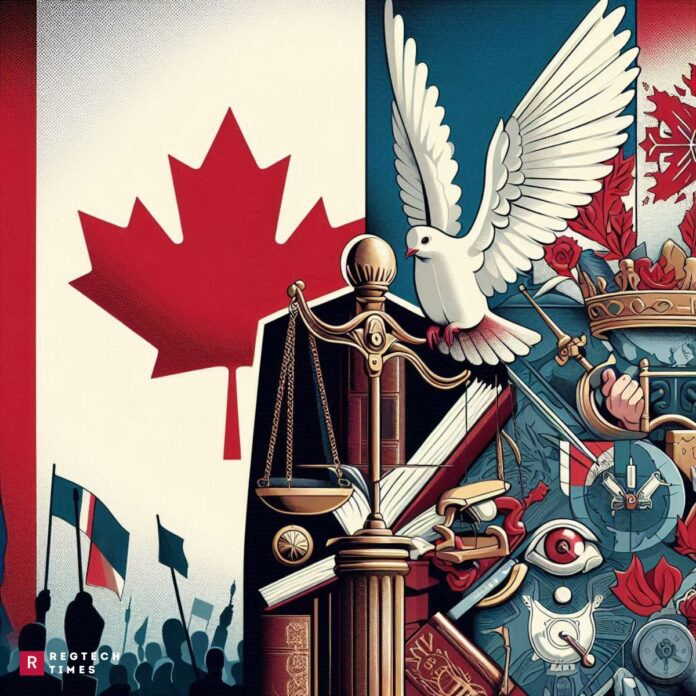Canada has issued a fresh set of sanctions aimed against important members of the Belarusian government, marking a significant diplomatic step up in reaction to the country’s continued breaches of human rights. This action follows the heavily criticized 2020 presidential election, which was seen as neither free nor fair both locally and abroad. The forceful attitude taken by the Canadian government underscores the rising alarm about the authoritarian techniques being used by President Alexander Lukashenko’s regime and mirrors a larger pattern of international censure.
These fines are based on recorded cases of violations of human rights that occurred after the contentious 2020 elections. A number of serious infractions, including arbitrary arrests, incarceration, violence, intimidation, and the disproportionate use of force against nonviolent protestors, are connected to the sanctioned persons. Following widespread nationwide protests over the contested election results, the Lukashenko dictatorship launched a larger campaign to quell opposition and preserve power.
The elections were deemed “not transparent, free, or fair” by the Organization for Security and Cooperation in Europe (OSCE), which echoes the opinions of foreign observers and the Belarusian opposition. President Lukashenko has insisted that the elections were valid in spite of these charges and overwhelming proof of electoral fraud. While maintaining a broad and sometimes deadly crackdown on opposition voices, he has charged Western countries, including Canada, of trying to topple his administration.
According to Canadian Minister of Foreign Affairs Mélanie Joly, 21 people connected to the Belarusian government are the focus of the most recent sanctions. These people have a variety of high-level jobs, such as those of public prosecutors, security forces personnel, and justice system officials. The presence of managers from prisons and purported “education” camps is especially notable, indicating serious concerns about Belarus’s treatment of political prisoners and repression of civil freedoms.
The imposition of these penalties by Canada was not a stand-alone decision. It is consistent with actions taken by the US and the EU, demonstrating a concerted global commitment to confront and stop Belarus’ violations of human rights. In accordance with the Special Economic Measures (Belarus) Regulations, Canada has implemented 14 rounds of penalties to date, impacting 211 people and 71 organizations in total. Canada’s determination to uphold the rights of the Belarusian people to peaceful protest and demand political accountability is demonstrated by this concentrated effort.
Canadian Minister Joly made it clear in her remarks that her country “will never tolerate a blatant disregard of democratic rights.” The penalties, she continued, send a “clear message to Belarus: Canada will continue to support Belarusians in their fight to enforce their right to a democratic future.” This language not only restates Canada’s position on human rights but also shows that the country is willing to take additional steps in the event that things in Belarus do not change.
Canada has promised financial help to civil society organizations in Belarus reaching $3 million in parallel with these measures. With an emphasis on supporting independent media and empowering women, two important components that enable the growth of a strong civil society capable of opposing authoritarian rule, this investment aims to advance democracy.
You might also like: Iran Sanctions Urged by Israel at UN Amid Intense Global Caution
Strategically, Sviatlana Tsikhanouskaya, the leader of the opposition in exiled Belarus, is visiting Ottawa at the same time that these penalties are announced. Her presence draws attention to the suffering of the Belarusian opposition and emphasizes the global scope of the opposition movement against Lukashenko’s government. It gives the opposition a platform to garner more support from other countries and gives Canada an opportunity to highlight its role as a worldwide defender of democracy and human rights.
The international community’s response, spearheaded by nations like Canada, continues to be an essential part of the larger effort to restore and uphold democratic practices and human rights in Belarus as the country struggles with the aftermath of the 2020 elections and the subsequent governmental crackdowns. By taking these steps, Canada not only demonstrates its commitment to opposing authoritarianism on a global scale but also sets an example for other countries to follow in bolstering the democratic resilience of Eastern Europe and beyond.


